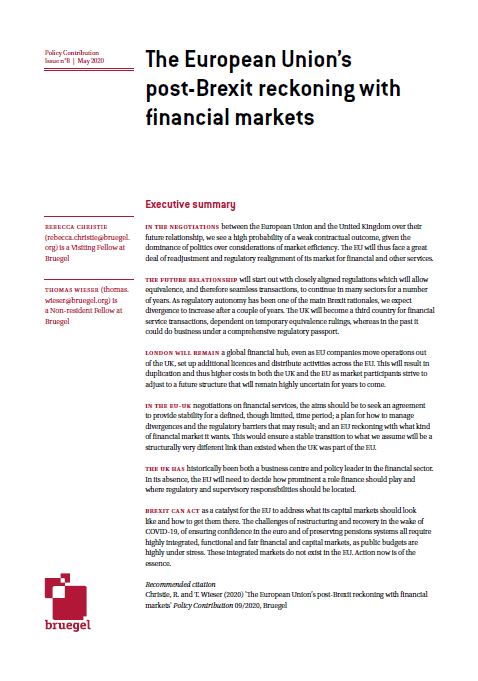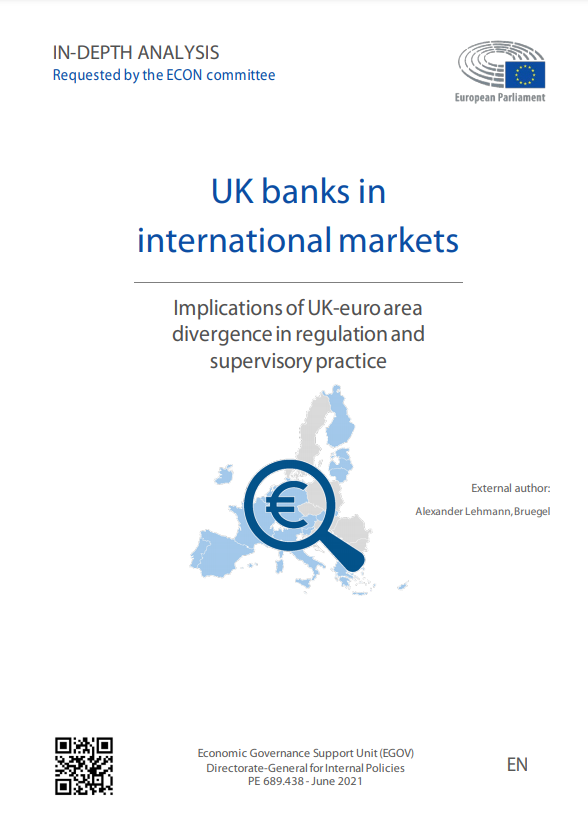Policy Contribution
The European Union’s post-Brexit reckoning with financial markets
In the negotiations between the European Union and the United Kingdom over their future relationship, we see a high probability of a weak contractual outcome, given the dominance of politics over considerations of market efficiency.
In the negotiations between the European Union and the United Kingdom over their future relationship, we see a high probability of a weak contractual outcome, given the dominance of politics over considerations of market efficiency. The EU will thus face a great deal of readjustment and regulatory realignment of its market for financial and other services.
The future relationship will start out with closely aligned regulations which will allow equivalence, and therefore seamless transactions, to continue in many sectors for a number of years. As regulatory autonomy has been one of the main Brexit rationales, we expect divergence to increase after a couple of years. The UK will become a third country for financial service transactions, dependent on temporary equivalence rulings, whereas in the past it could do business under a comprehensive regulatory passport.
London will remain a global financial hub, even as EU companies move operations out of the UK, set up additional licences and distribute activities across the EU. This will result in duplication and thus higher costs in both the UK and the EU as market participants strive to adjust to a future structure that will remain highly uncertain for years to come.
In the EU-UK negotiations on financial services, the aims should be to seek an agreement to provide stability for a defined, though limited, time period; a plan for how to manage divergences and the regulatory barriers that may result; and an EU reckoning with what kind of financial market it wants. This would ensure a stable transition to what we assume will be a structurally very different link than existed when the UK was part of the EU.
The UK has historically been both a business centre and policy leader in the financial sector. In its absence, the EU will need to decide how prominent a role finance should play and where regulatory and supervisory responsibilities should be located.
Brexit can act as a catalyst for the EU to address what its capital markets should look like and how to get them there. The challenges of restructuring and recovery in the wake of COVID-19, of ensuring confidence in the euro and of preserving pensions systems all require highly integrated, functional and fair financial and capital markets, as public budgets are highly under stress. These integrated markets do not exist in the EU. Action now is of the essence.








